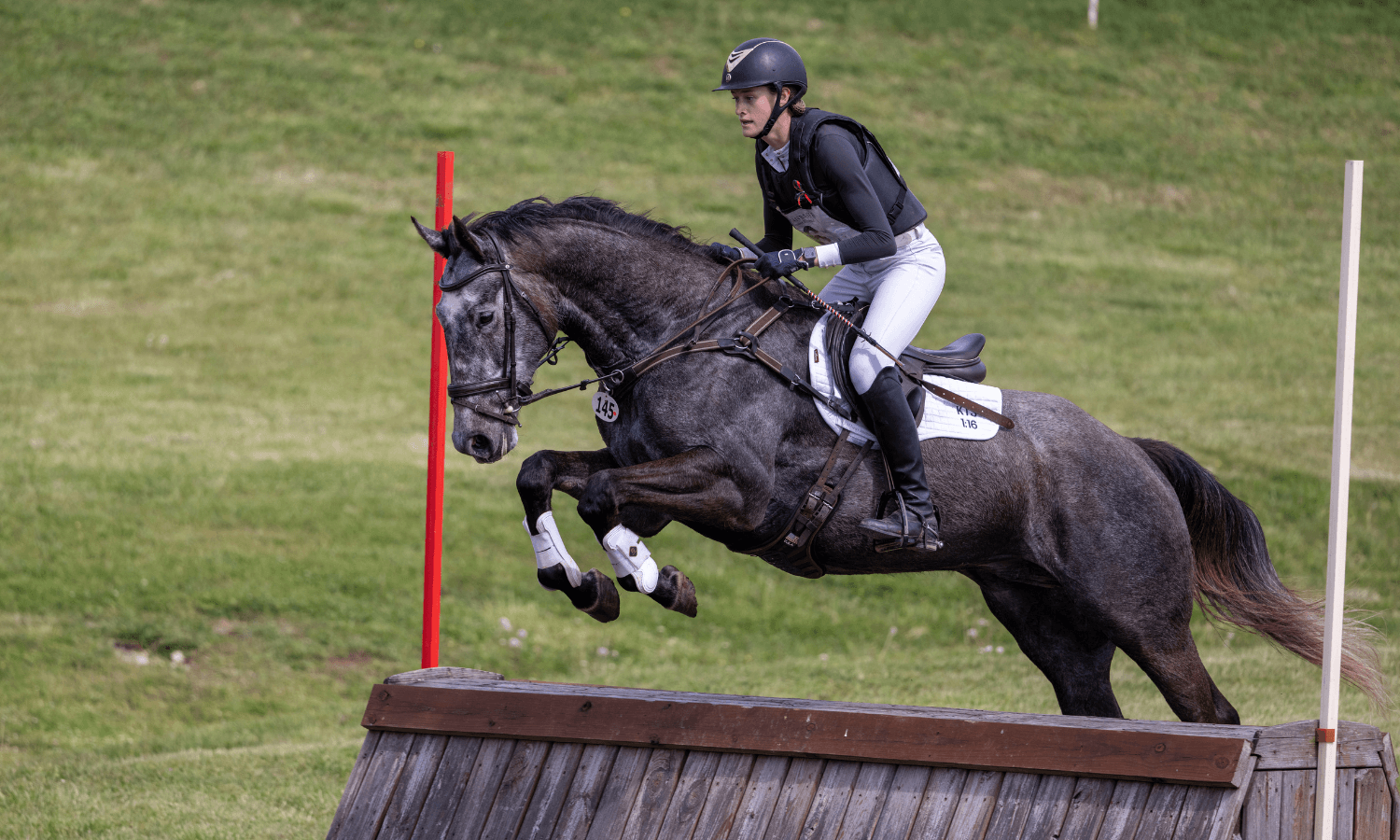Pine Hill: The Little Event That Could
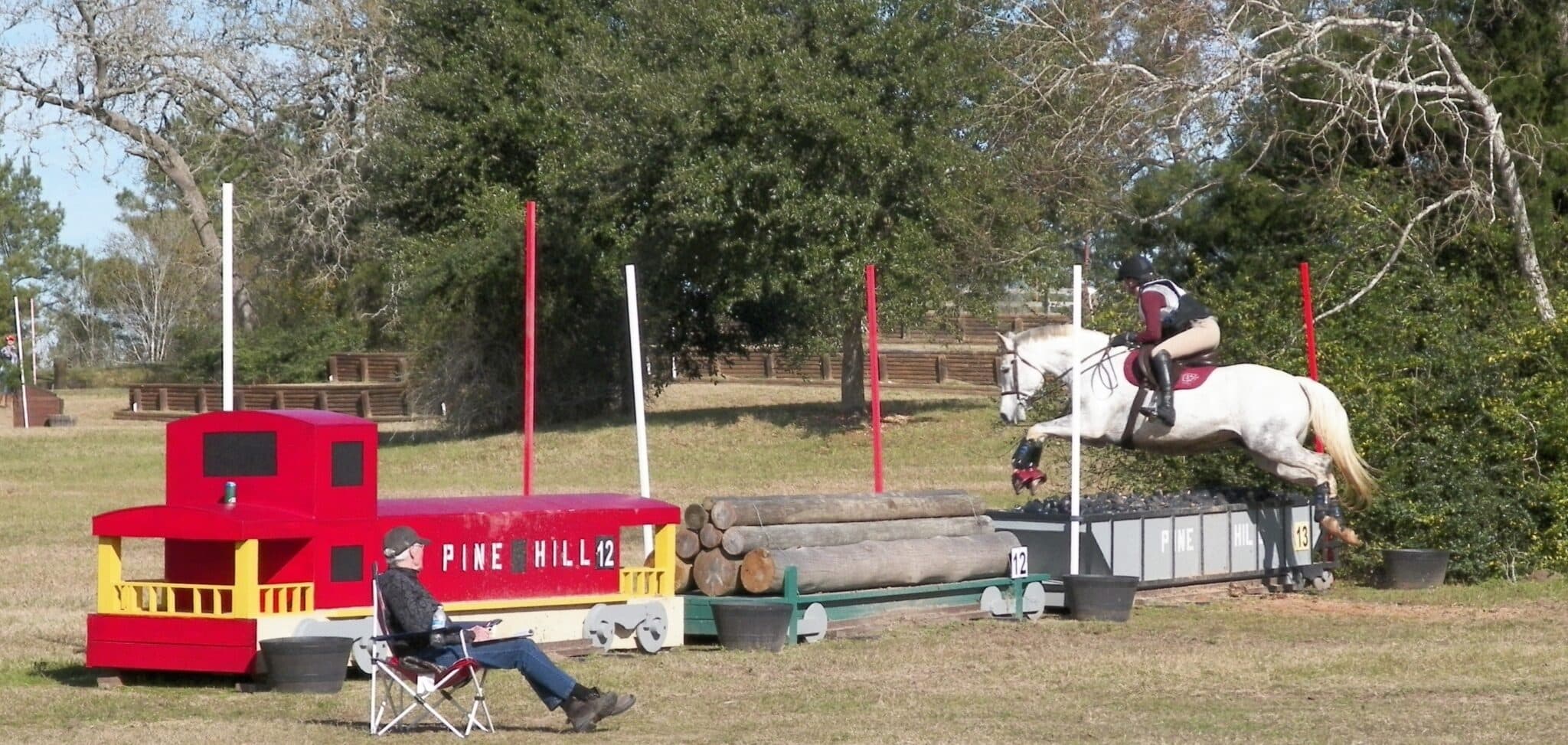
Ruth Sawin’s Pine Hill eventing facility is mastering the art of successful engineering of a small 120-entry horse trials, no less than seven times a year. With the help of a talented, dedicated volunteer and paid staff, this gallant little facility, deep in the rural pine forest of south central Texas (near Bellville), keeps two USEA recognized and five unrecognized horse trials chugging onward annually. Pine Hill has kept this focus on eventing since the late Phil Sawin began the unrecognized horse trials in 1979, and added the recognized horse trials in 1985.
Ruth, who is the event organizer, took on her husband’s mantle of inspiration after he passed away in 2011. Working alongside excellent officials, she keeps entries regularly filled to capacity. Pine Hill offers Starter through Preliminary levels with Starter courses designed by Ruth, Preliminary levels designed by Carsten Meyer and all other levels designed by Danny Warrington.
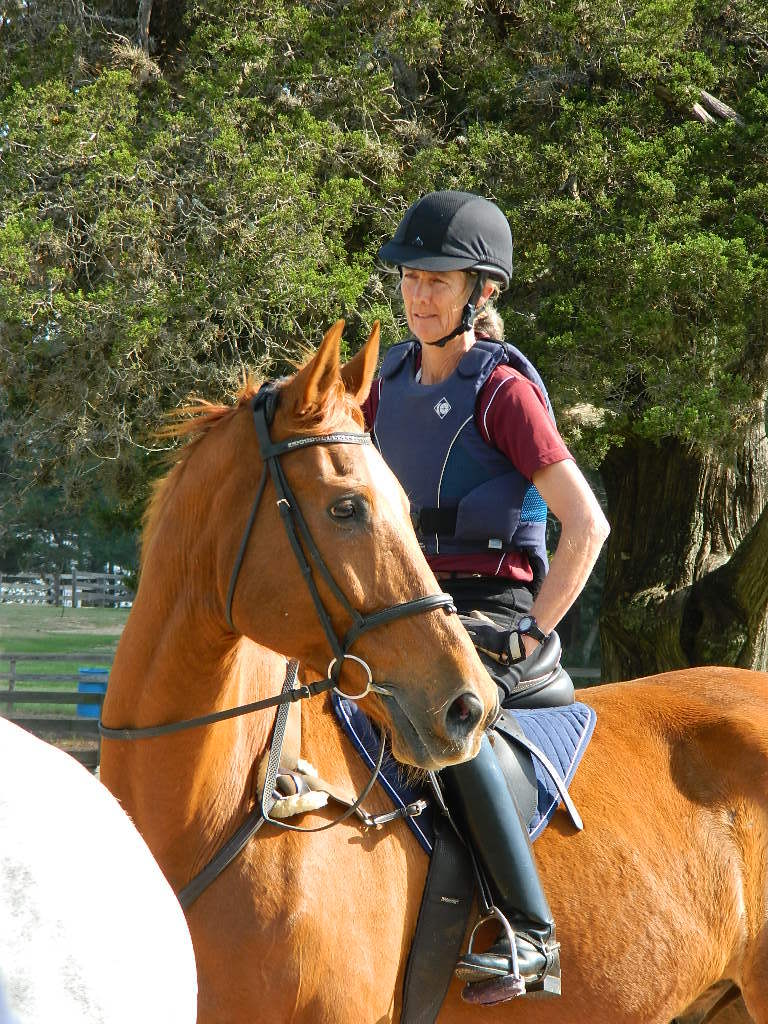
Ruth Sawin, the mastermind behind the Pine Hill operation. Photo by Dr. Sandy Venneman
But it is the steadily chugging engine of the volunteer force keeps each horse trials on track. Volunteer Coordinator Irene Doo has brought her skills from her “real-life job” as a Training Designer and Coordinator to maintain an organized system of prepping and running the horse trials for the volunteers, working with both new and experienced helpers at each event. Her genius system is a combination of many smart and simple ideas that can be easily passed on to new volunteers and staff.
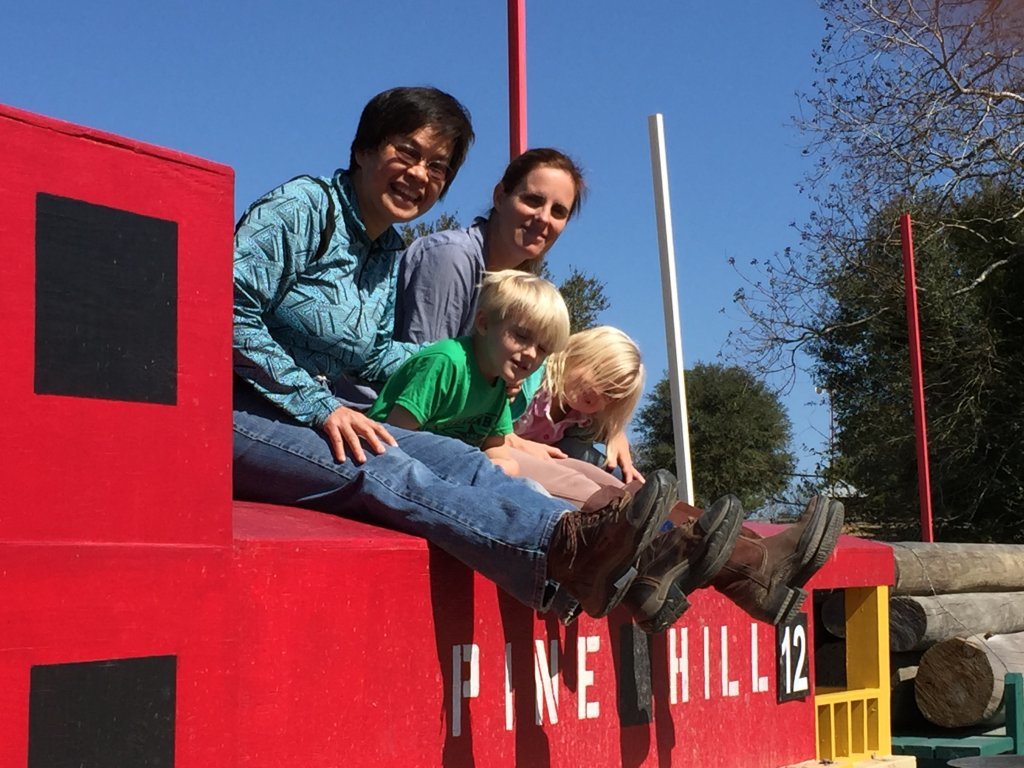
Volunteer Coordinator Irene Doo with volunteer Amy Etheridge. Photo by Mary Hirsch.
Two of the central organizational themes are: 1) Each horse trials task or job has its own labeled, stackable Sterlite box ready on the morning of the horse trial, containing all of the supplies needed by that volunteer or staff member that day; and 2) Checklists for every supply box and every task, so that each task and box are properly and consistently done, no matter which volunteer takes it on.
Bright and early on the morning of the event, each member of the horse trials team, from volunteers to event staff, drops by the office, grabs their fully-supplied box and heads out for the day.
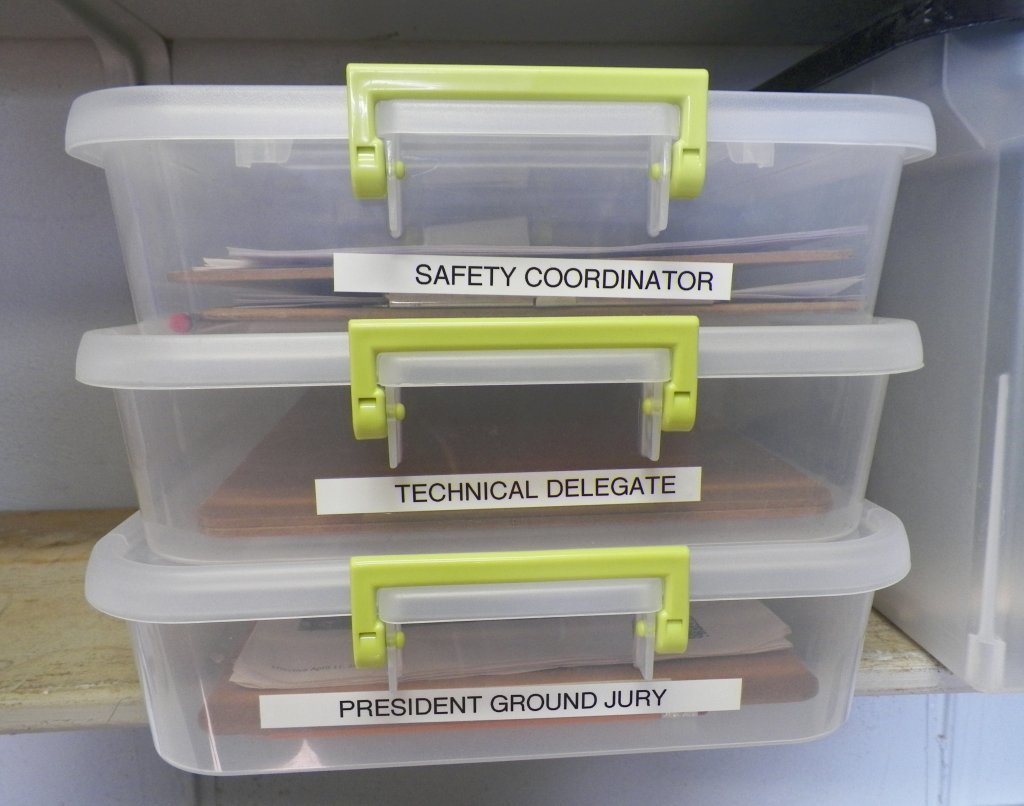
Organization is the cornerstone of this successful event. Photo courtesy of Mary Hirsch.
Amy Etheridge, pre-event preparation volunteer and dedicated manager of the horse trials cross-country team, also works from planning sheets. Etheridge continues Doo’s carefully coordinated system with the jump judges. She prepares supply boxes for each volunteer that will be on course that include sheets, pencils, maps and directions they will need for the day. This structure keeps everything flowing smoothly and allows Etheridge to devote more of her focus to the volunteers and competitors.
So what about pre-event preparation - does it take forever to assemble all of those boxes of supplies for so many volunteer tasks? Actually, no! With a checklist as a guide for what goes into each horse-trials job-box, plus all of the supplies assembled in labeled storage containers stacked neatly in the office, a couple of volunteers can fill all of the task boxes in just one or two hours. The checklist makes it easy even if a volunteer has never before helped assemble the boxes. And, supplies for everything from stall labels to ribbons are kept in labeled, stacked containers, easily to hand, for volunteers working from lists detailing what is needed for each preparatory task.
As a result of this system, prepping for each event has been reduced from three days to just one. Fewer volunteers are needed for preparation. New early-prep volunteers working from a checklist need less supervision. Management of the volunteer help becomes that much easier, as does stress reduction generally!
On the day of the horse trials, front office volunteer Shannon Mercer not only hands out competitor packets, she can also easily provide officials and competitors with almost anything they suddenly need by simply reaching into “The Cart,” a rolling file holder that is their time-saving, space-saving purveyor of “everything”, including radios and ribbons. Another one of Irene Doo’s organizational brainstorms, the office volunteers have great affection for “The Cart.”
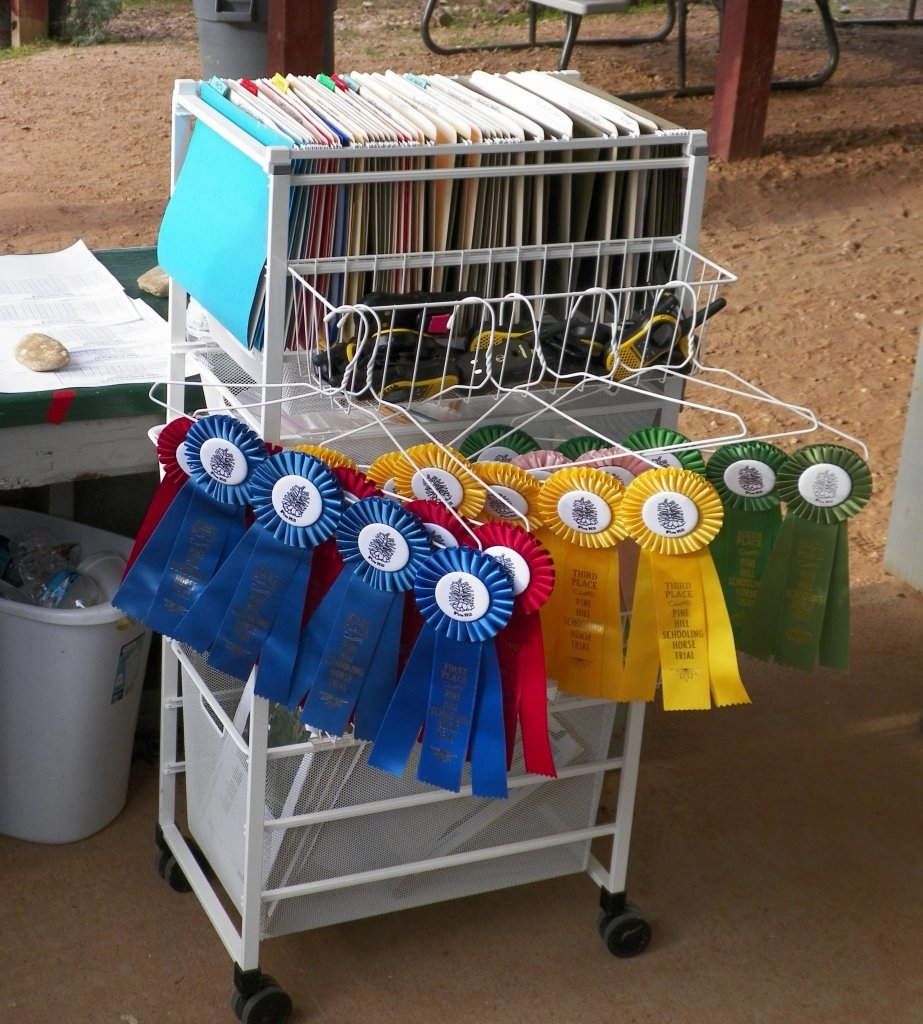
The infamous Cart. Photo by Mary Hirsch.
Ruth and Doo are always trying new ideas to make things easier for their valuable volunteer force. Their next step is creating training videos help ensure continuity and quality, and make it easy to bring volunteers up to speed on new tasks.
Ruth credits her late husband Phil Sawin with being the inspiration and energy behind Pine Hill’s long-running dedication to horse trials and eventing. Phil hosted the farm’s first competitors 37 years ago, and they’ve continued to show up to this fabulous facility ever since. With the help of dedicated volunteer and professional staff, Ruth continues to carry Phil’s legacy forward for Texas eventing.
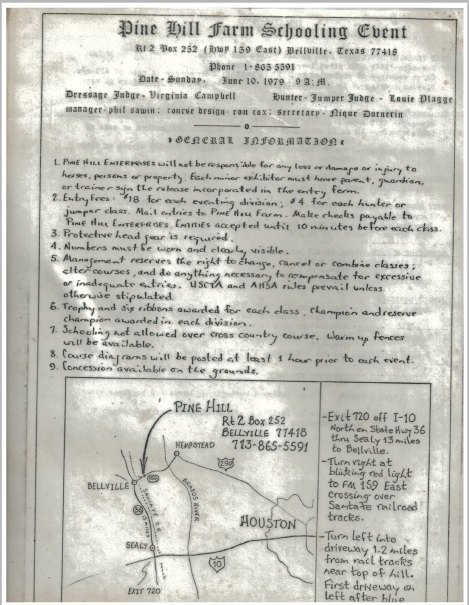
1979 Brochure for Pine Hill Farm. Photo Courtesy of Mary Hirsch.
Being able to easily replicate a successful event multiple times per year, even with changing faces among the volunteers and staff, by using checklists and organized materials, make Pine Hill a small but mighty destination event. Ruth Sawin, Irene Doo and all of the Pine Hill volunteers are ready to keep the process rolling forward for many more years to come!


